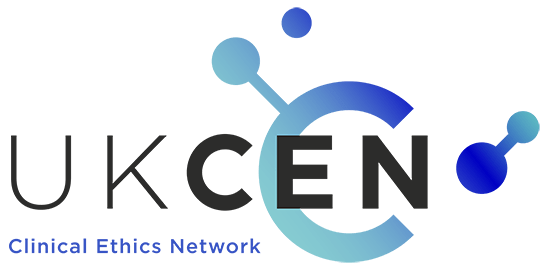Making the Case for a Clinical Ethics Service
Many healthcare professionals recognise the need for clinical ethics support. Senior colleagues and managers have also recognised the need, including during the covid-19 pandemic, when many organisations convened new ethics groups to advise on aspects of care during the pandemic.
Sometimes, however, a case may need to be made for the creation of a clinical ethics service, such as a Clinical Ethics Committee (CEC) or Clinical Ethics Advisory Group (CEAG). Here we summarise the case for such services, which we hope will prove helpful to those making such a case. You might also find it helpful to consult the following (freely available) article, which reflects on the authors’ experience of making a (business) for a UK clinical ethics service: you can find the article here.
Below we describe some possible benefits to having a clinical ethics service. These benefits link to the question of evaluation, which is discussed further in Processes. Please note, however, that there is ongoing debate in the international literature about how best to measure the outcomes of clinical ethics services and evaluate their work. For example, a 2019 Cochrane review by Schildmann and colleagues concluded that “It is not possible to determine the effectiveness of ethical case interventions with certainty due to the low certainty of the evidence of included studies in this review… There is need for further research to identify and measure outcomes which reflect the goals of different types of ethical case intervention.” (You can read the review here.)
There are, nevertheless, indications that clinical ethics services provide or add value in the following ways:
- Supporting clinical decision-making. Clinical ethics services can support clinical decision-making, by ensuring that is attentive to the relevant ethical aspects. It is important to note that such services are advisory – ultimate decision-making authority remains with the relevant clinician, in consultation with the patient and other appropriate stakeholders. As such, clinical ethics services are advisory and supportive; they do not interfere with clinical autonomy. For such reasons, some services prefer to label themselves as Clinical Ethics Advisory Groups.
- Reinforcing the organisation’s ethical culture. Various official inquiries and legal proceedings have highlighted the importance of attending to ethical considerations in clinical care. When incorporated into the governance structure of the host organisation, formal clinical ethics support provides a mechanism for the organisation to transparently and systematically address ethical challenges arising from clinical practice.
- Fostering trust amongst the public, patients and other stakeholders. Regulators, such as the General Medical Council, refer to the importance of fostering and maintaining the trust of patients and other stakeholders. It is conceivable that the existence of a clinical ethics service will help to foster the confidence and trust of the public, patients, and other service users.
- Improving patient well-being and satisfaction. The existence of a clinical ethics service within an organisation can promote positive patient perceptions of the organisational approach to the provision of clinical care. A service may also help to improve patient outcomes and well-being, for example, by promoting clinical care that is aligned with the interests and wishes of patients.
- Improving staff well-being. The ethically challenging aspects of patient care can, in some cases, cause staff to endure moral distress or moral injury, and leave them with a moral residue. These can, in turn, lead to further adverse effects, such as compassion fatigue, avoidance of similarly challenging scenarios, burnout, and exit from the profession. Since a clinical ethics service provides a forum for openly addressing the ethical aspects of healthcare, it is conceivable that this can help to address moral distress and thereby improve staff well-being.
- Reducing or removing conflict. A clinical ethics service may be able to help address – and hopefully resolve – disagreements and disputes. Clinical ethics services might not be explicitly configured or intended to provide conflict resolution, but they may well be involved in disputed matters (such as in case consultation). Although some disputes might lead to complaints or legal action, a clinical ethics service may help to avoid such outcomes.
- Saving the organisation (or system) money. A clinical ethics service aims to ensure that due account is given to the ethical aspects of healthcare, for example, by providing input into individual patient care, relevant policies adopted in the organisation, and the education of colleagues. Through such input, the service may be able to help reduce complaints and legal proceedings, which can otherwise be costly, both emotionally and financially.
